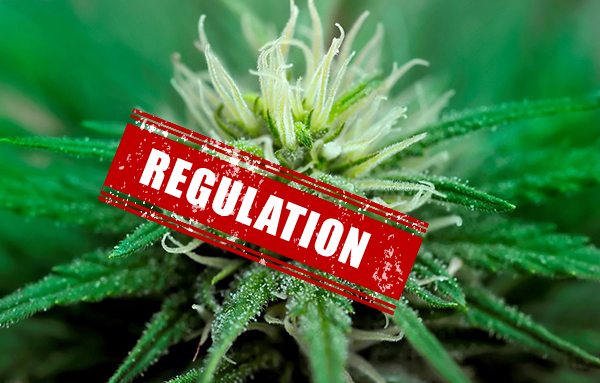One of the strongest arguments for cannabis law reform is the appeal to regulate the market. The idea that a government can make cannabis illegal and then it just “goes away” is childish, and the historical example has borne this out. As this article will examine, legal cannabis is the only realistic way to regulate the market.
Many people envision that the world before cannabis prohibition was one of chaos. Shady dealers set up outside high schools to sell to pupils, pharmacists pushed untested and unresearched cannabis products on a naive public and criminal enterprises got fat with the income from cannabis bootlegging. The reality is closer to the reverse of this.
When a substance such as cannabis becomes illegal by act of law, what that means in practice is that the manufacture and supply of that good becomes completely unregulated. Making something illegal is not a way of regulating it – it’s a way of putting it into the “too hard” basket. It shifts control from the regulators to the black market.
The black market doesn’t attract nice people. It generally attracts people with no better options – desperados. Because there is currently no opportunity to legally profit from cannabis in New Zealand, the only people who deal with the subject matter are black marketeers. There is no guarantee that such individuals will adhere to what has been established overseas as professional industry standards for manufacture and supply of cannabis products.
Regarding the manufacture of goods on the black market, it’s apparent that there are little in the way of health and safety considerations. This is a relatively minor concern in the case of cannabis, but it’s still possible that any bud manufactured by a criminal enterprise has used unwanted chemicals in the growing process. They might have used chemical fertilisers that leave side-products that people don’t want in their bodies, or treated the bud with something to make it appear danker.
When it comes to supply, the situation is even worse. A normal business primarily competes with others through advertising, whether word-of-mouth or commercial. They don’t compete through intimidation. The manager of the local Countdown would never send an underling to take out Fresh Choice workers for selling on the wrong turf. Black marketeers selling illicit drugs happily take their competitors out such ways though.
The vast majority of the criminal activity associated with cannabis comes about because of prohibition. It’s isn’t natural to cannabis. With no regulatory oversight, there’s nothing stopping the black market selling to 13-year olds or wiping their competitors out in turf wars. Cannabis is already illegal, so it’s not like the victims could go to the Police. Black market actors have free rein until they are arrested.
Practically speaking, there is going to be a cannabis market whether we like it or not, so we might as well make sure that it’s on the level.
Regulation would solve the problem of tainted product, because growers will need to be able to account for their grow methodology and process. End consumers will be prevented from becoming ill because the possibility of dangerous chemicals being used at some point in the process will be minimised. If anyone does become sick, responsibility can be placed on the correct party and appropriate measures taken.
Moreover, a regulated cannabis supplier or dealer is much more likely to comply with public requests for decency than the black market is. Regulation will inevitably mean that cannabis dealers will need to become licensed, which means that they are strongly incentivised to adhere to laws regarding not supplying to minors, not supplying to intoxicated people etc. They also can’t shoot their competitors and expect that this will lead to a greater market share.
A final benefit is that regulation will mean that cannabis suppliers cannot deal with other products as well. As mentioned elsewhere, the gateway drug effect can only occur when people seeking cannabis are exposed to hard drugs. A professional cannabis retailer will not have an incentive to offer their customers methamphetamine, unlike a gang member. In practice, they are unlikely to even be allowed to sell alcohol or tobacco.
All this means that regulation will have the effect of almost taking cannabis away from the black market entirely. Those who are allowed to compete on the legal market for cannabis will have to meet quality standards that ensure that safety of the users (to such a degree that this is possible when people take psychoactive drugs). This will have the overall effect of reducing harm.
Cannabis should be legal because regulation of cannabis causes less suffering than criminalising it. We need to abandon the childish idea that making something illegal makes it go away, and employ a sophisticated and intelligent approach to dealing with the issues caused by cannabis. The only realistic way to do this is through regulation.
*
This article is an excerpt from The Case For Cannabis Law Reform, compiled by Vince McLeod and due for release by VJM Publishing in the summer of 2018/19.

